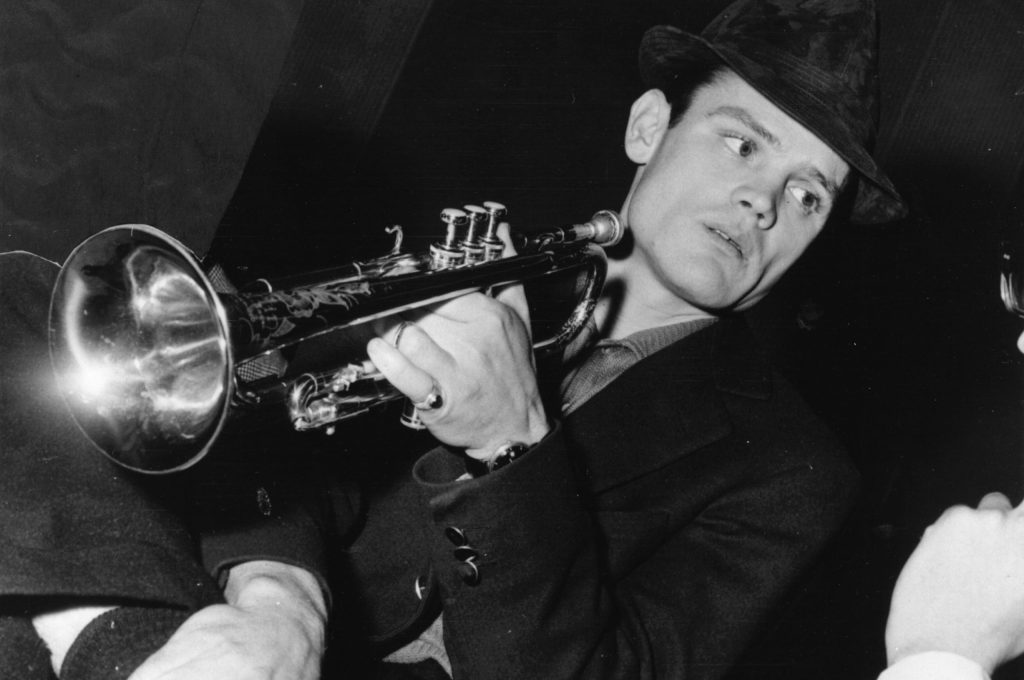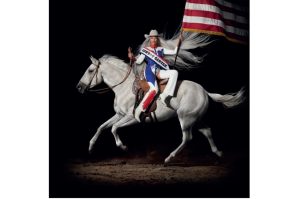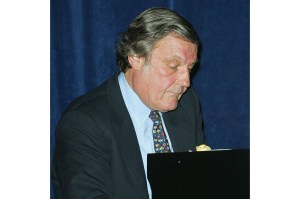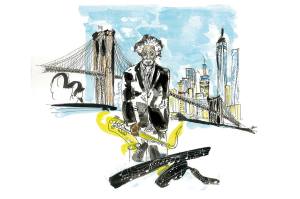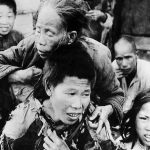‘When the legend becomes fact, print the legend,’ Maxwell Scott announces in The Man Who Shot Liberty Valance. Something like this seems to have occurred with the jazz trumpeter Chet Baker. Other members of the West Coast jazz scene such as the great saxophonist Art Pepper were often in dire straits, but Baker has come to personify the romantic figure of the tragically doomed jazz artist.
Once heralded as the ‘prince of cool’, Baker’s self-destruction was lucidly chronicled by Bruce Weber in the 1988 documentary Let’s Get Lost. Even his album covers, where he gazes broodingly at the viewer, underscore his vulnerability. His meditative, halting solos formed the antithesis of the frenetic bebop movement emanating from jazz haunts on the East Coast. Not for him the trumpeter as matador, tossing off high-note heroics or cascading chromatic riffs à la Dizzy Gillespie or Roy Eldridge.
Instead, his sound was as sultry as his looks. A dreamboat in his youth, Baker enjoyed a brief turn in Hollywood, playing a trumpeter named Jockey in Hell’s Horizon, a 1955 movie about the Korean War. But triumph was quickly followed by turmoil. Baker’s looks, which the film critic David Thomson described as ‘white-trash Dorian Gray’, ended up deliquescing almost as suddenly as those of Oscar Wilde’s protagonist. Baker would even sell his instruments to raise money for his drug habit. ‘Forget any concept of Chet Baker as a romantic figure,’ the legendary Riverside records producer Orrin Keep news once tartly observed. ‘He was an evil junkie and a whining, devious young man.’
Addiction to heroin, a jail sentence at Riker’s Island, a savage beating in San Francisco that knocked out his front teeth, flickers of musical rebirth, then all of it terminating in a mysterious death at 59 years old in 1988 on the pavement below a third-floor hotel balcony in Amsterdam, where local police deposited a crumpled body in a morgue. Poor Chet. He really was born to be blue. It took a day for anyone to identify the corpse.
He may have spent his final years in Europe, but California dreamin’ was at the heart of his career. Baker, who was born in Yale, Oklahoma on December 23, 1929, moved to California with his parents and joined the 298th Army Band in 1946. Upon exiting the Army in 1951, he rocketed to stardom as a member of the Gerry Mulligan Quartet, which landed a recording contract with the Pacific Jazz label. Baker soon became renowned for his plangent vocals, especially on ‘My Funny Valentine’, which is referenced in the movie The Talented Mr. Ripley when the protean Tom Ripley imitates Baker’s voice as he sings along with Dickie Greenleaf’s saxophone solo. All along Baker’s star has never really dimmed that much. He’s perennially rediscovered. Mariah Carey and MC Tricky have sampled his work. In 2011, James Gavin’s probing biography Deep in A Dream: The Long Night of Chet Baker was reissued as a paperback. In 2015, Ethan Hawke starred in a well-received film about Baker called — what else? — Born to be Blue. Now, a flurry of Baker’s own recordings, ranging from the 1950s to the 1970s, are being rereleased as lavish productions by a variety of record companies including Dot Time, Blue Note’s Tone Poet series, and Craft Recordings.
What’s all the fuss about?
The Craft reissue of five albums that Baker recorded for Riverside in the late 1950s offers a good opportunity to revisit some of Baker’s most significant work before narcotics completely laid waste to his talents. It includes a 16-page booklet with a number of photographs. On the album Chet Baker in New York, Baker teams up with such stars as Johnny Griffin on tenor sax, Paul Chambers on bass and Philly Joe Jones on drums, all of whom had played with Miles Davis whom Baker admired. On the classic Davis tune ‘Solar’, though, Baker takes it at a rather lugubrious pace.
He fares better, I think, with the Tin Pan Alley standards that form the heart of much of the traditional jazz repertoire. On the lovely, contemplative ballad ‘Alone Together’, from the eponymous album Chet, Baker enters with haunting precision after a brief introductory passage from Bill Evans, and is immediately followed by Pepper Adams on baritone sax. ‘Alone Together’ was apparently recorded in one take — a polished gem that could not have been improved upon.
But perhaps the most intriguing album in the set is Baker’s debut LP for Riverside. ‘I don’t know whether I’m a trumpet player who sings, or a singer who plays the trumpet,’ he once observed. In It Could Happen to You, he dispenses with the horn to sing a variety of standards, including the Rodgers and Hart number ‘Do It the Hard Way’. It’s a title that might also serve as an epigram for Baker’s own turbulent life.
This article was originally published in The Spectator’s April 2021 US edition.
